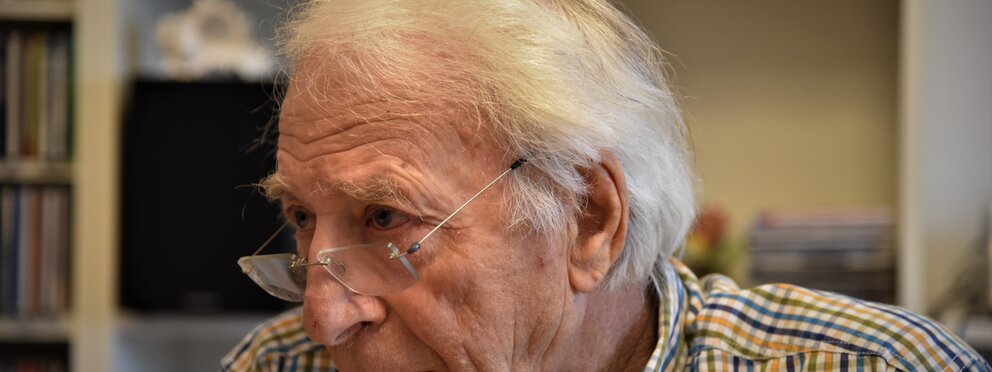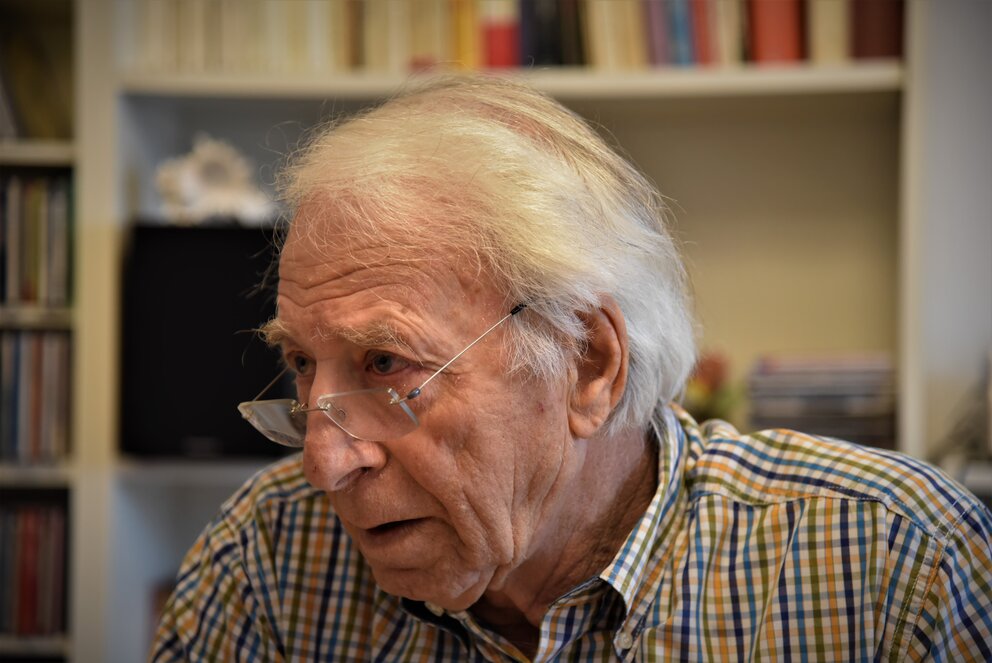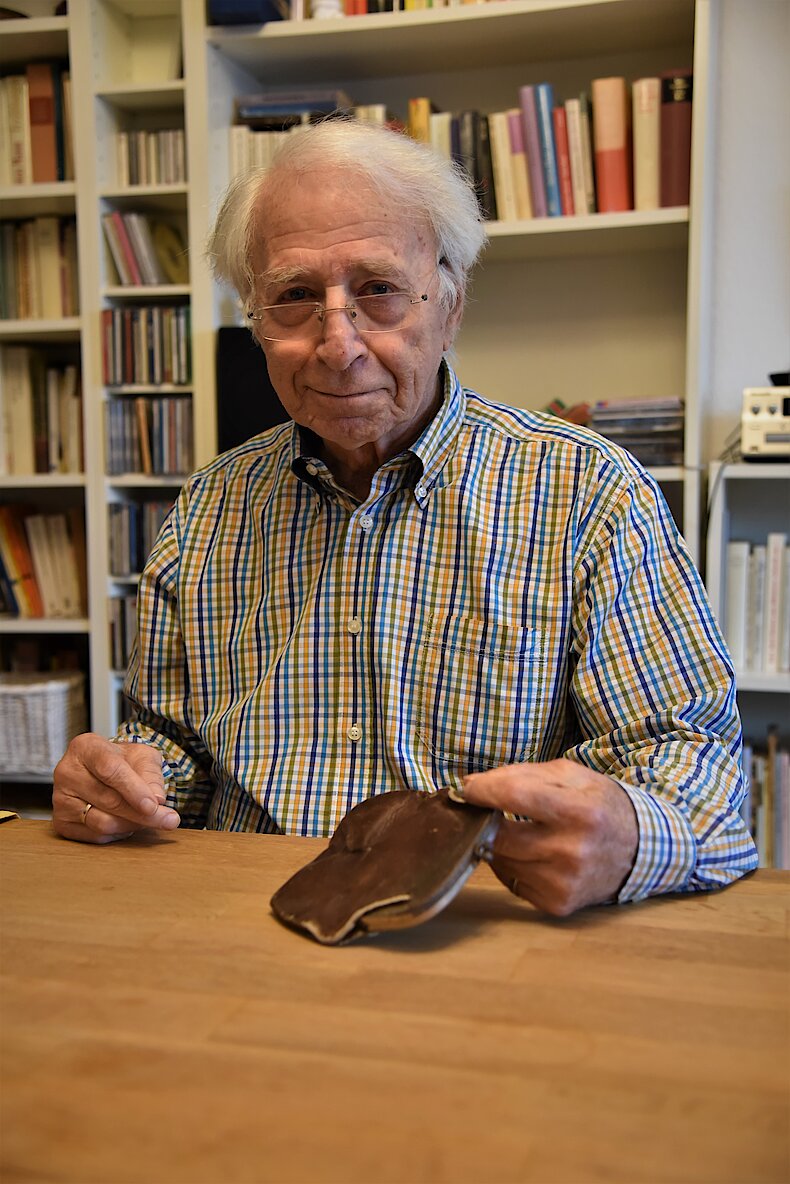
Peter Finkelgruen
About Peter Finkelgruen
Peter Finkelgruen was born in Shanghai on 9 March 1942. His parents had emigrated there at the beginning of the Second World War because his father Hans had been persecuted as a Jew in Germany. After Shanghai fell under Japanese control, the family lived there under precarious circumstances in a ghetto. Peter's father died in 1943. In 1946, he and his mother Ernestine moved to Prague to live with his grandmother, who had survived several concentration camps. Shortly afterwards, Peter's mother died as a result of life in the ghetto. His grandmother and Peter then emigrated to Israel, where they ended up living on a farm run by his grandmother. Peter graduated from high school in Jaffa in 1959. The two went to Germany, where Peter studied political science, sociology and oriental studies. He eventually began working as an editor and speaker for Deutsche Welle, the foreign broadcaster of the Federal Republic of Germany. He also worked for the broadcaster as a foreign correspondent in Israel. At the end of the 1980s, Peter decided to travel in the footsteps of his parents and learnt from a friend of his grandmother in Prague that his grandfather Martin Finkelgrün had been beaten to death by a guard in the Theresienstadt concentration camp. Peter then campaigned for the murderer's conviction for over a decade. In the meantime, he published several books and worked on theatre and film projects. Today he lives in Cologne.
"I can only encourage you to stay awake, pay attention and be suspicious. And don't be afraid to speak up!"

A picture to live on
Home, according to Peter Finkelgruen, are places that he knows well, where he meets friends and knows which pavements to stumble on. He has spent his life in many different countries, which he has visited time and again and with which he has close ties. Travelling in particular has become a constant companion in his life.
The leather wallet symbolises a childhood travel experience he had on a ship from Shanghai to Europe in 1946, when a cook gave it to him as a consolation after he got stuck in the ship's toilet and had to wait a long time to be rescued.

Our encounter
Peter Finkelgruen and his daughter were waiting for me in the open doorway to greet me. We sat together at the dining room table surrounded by ceiling-high bookshelves with coffee and biscuits in front of us. Peter Finkelgruen seemed calm and relaxed, a little curious as to who was sitting in front of him and what I was going to ask. This was a special interview for me, because Peter Finkelgruen was working with a public prosecutor to bring the murder of his grandfather to court. I have been working with court files for a very long time and have dealt a lot with preliminary investigations and trials against perpetrators under National Socialism. Surprisingly and unexpectedly, Mr Finkelgruen and I immediately had something in common. We were able to talk for a long time about how laborious it is to track down all the files, arrange every little piece of the puzzle correctly and put them together to form a crime.
I had a catalogue of questions and could have gone on asking for hours, maybe even days. The fact that Mr Finkelgruen patiently answered so many of them and shared his life story with me made me incredibly grateful. I will never forget the moment when Mr Finkelgruen told me about how he stood on the roof in the rain with his mother, how he recounted this episode. How he and his grandmother built a new life in Israel after the death of his mother, that he came to Germany and studied against all odds, as well as his CV and what he achieved, made a deep impression on me.
